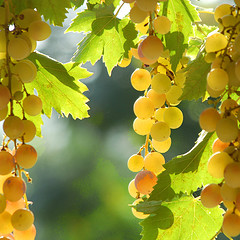Poem: The Vine
The Vine — A VirusHead Poem
All this talk of trees, on and on for the phallic market
Strategies of an oily snake for leafage sales (once his hanging
Globulars were taken). Sublime awareness must be more
Than a petty lesson from a parent uncomfortable
With the shape of fruition, death more complex
Than effect catalyzed by theft of figgish ‘apple’, or …
Lest we ruin another ancient secret, the swords still whirl.
But there was a gift, a scion, benevolent mutation,
An ancient cousin, less fond of the veil game,
Connections ‘r us – in moderation, not that there’s anything
Wrong with that. Playfully, the vine invites us:
‘Yes. Take, eat, suckle, nibble, drink’ – a homeopathic dose –
The measured amount that nourishes just enough,
(Just barely enough) on the wastes of flesh, for the new
Sinuous snake of wordflesh to spread, and
Not to burn. Note the nice black snakeskin cover.
What is good? What is evil? Forget fruits, we have
The BOOK. Stroke it. Hold it in your hand. Yes, it’s a fetish.
No fast-talker, this, but a breed of medusa. Don’t look!
Or not so closely that you get lost, but turn a mirror back
On the endless reflexivity. There is a back door.
A glimpse we have, and still unguarded,
A taste of the kiss of veritas. Glory seed, it waits
In cold confining, firmly packed and heavy,
Odorous manure of word, tradition, interpretation,
Community’s spores – embedded soldiers –
Shovel it, and spread thick muddy mundacity, while busy
Microbial servants work endlessly, and so, so fruitlessly,
To keep things clean. But they can’t stop it.
Reaching out, tendrils wisp and unfurl – beauty!
Out of the pungent darkness, a tiny finger
Crawls out of its tunnel and is born into the light. Free but rooted,
Held but yearning, the spirit of the vine.
Was there ever a more pleasing green?
Though it would, the vine cannot touch the sky.
It must – at its limit – extend horizontally, like
The famous crossbeam on the hill. Infected by the spirit,
You are, but the blood of it might not be what you expected.
Watch out for stomping peasants.
Rambling through the billion intersections
Of light and darkness and twilight and moonrise,
Absorbing rain and glare and breezy accidents
Of hills state and province, all with vineyard care
into a shimmering feedback loop, it forms
An eternal recurrence, the golden mean in fractal path,
Perfect, perfect imperfection. Like the face of
The lover, experience marking the quality
Of the vintage, the bouquet… the aftertaste.
The very sunlight is touched, and lovers
Everywhere feel it, as they lie intertwined
With and around and within each other
Under the bluer sky. You might not like
The hoofed Dancer, but those pipes were jazz.
Rhythm and melodic joy brought them up to
Dance and love and feel the world worlding,
Silly, erotic, full of life – even violent –
Just as (un)truthful, maybe (un)lying.
But some still choose to whisper “dieâ€
Painting nature’s music the devil, the adversary,
Only to find themselves pulled by karma’s trowel,
Just dour weeds, withering now so close
Touching close, to the vibrancy
Of what they refused to know
While they lived by the scythe.

